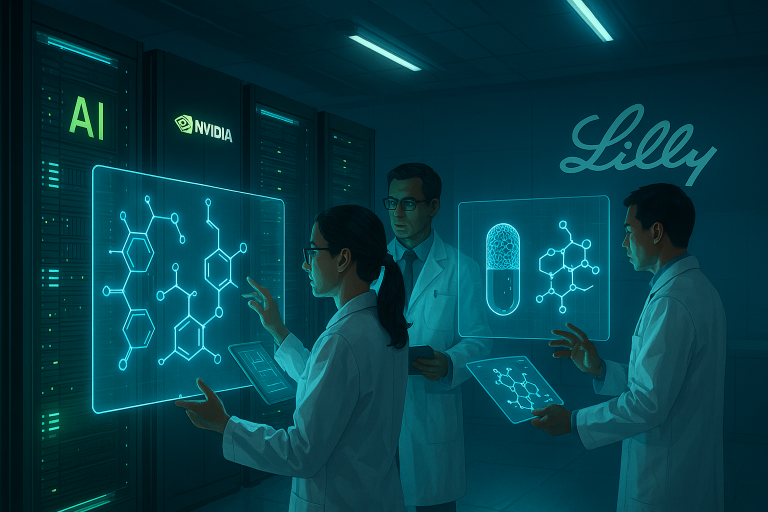Eli Lilly & Co. has joined forces with artificial intelligence chipmaker Nvidia Corp. to develop what the companies describe as the most powerful supercomputer operated by a pharmaceutical firm.
The partnership, announced Tuesday, is designed to accelerate the discovery and development of new medicines using AI and high-performance computing.
The Indianapolis-based drugmaker, known for its weight-loss treatment Zepbound and its diabetes and cancer therapies, said the new supercomputer will enable it to identify promising molecules more efficiently and reduce the typically lengthy timelines required to bring drugs from the lab to market.
Lilly also plans to apply the system’s AI capabilities to improve clinical trials, manufacturing processes, and commercial operations.
Although the companies did not disclose financial terms, Lilly said that some Nvidia equipment has already arrived at its Indianapolis data center and that the system is expected to be fully operational by January.
Accelerating innovation through AI
The collaboration underscores the growing belief across the pharmaceutical industry that AI can transform how new treatments are discovered and developed.
AI tools are increasingly being used to analyze vast datasets to identify disease mechanisms, potential drug targets, and new therapeutic molecules that traditional methods may overlook.
Large pharmaceutical companies such as Johnson & Johnson and Roche Holding AG have been ramping up their AI investments, while startups focused solely on AI-driven drug discovery have also gained momentum.
Still, despite the excitement, industry experts caution that AI’s direct impact on drug development remains limited so far.
Many firms have found early success in using AI for back-office functions, data analysis, and clinical trial design rather than for discovering new drugs that reach regulatory approval.
Thomas Fuchs, Lilly’s chief AI officer, said the project represents a meaningful use of artificial intelligence that could significantly improve healthcare outcomes.
“AI is used these days for so much useless stuff,” Fuchs said. “But this one, that’s the one it should be used for. It’s really something that helps us improve the human condition.”
Nvidia expands its role in life sciences
For Nvidia, the partnership marks a deepening involvement in the healthcare and life sciences sectors.
The company has recently forged alliances with institutions such as the Mayo Clinic and DNA-sequencing company Illumina Inc., as it continues to apply its AI processors to research areas requiring complex computational modeling.
The Lilly supercomputer will run on more than 1,000 Nvidia Blackwell GPUs, specifically the B300 chips—among the most advanced AI processors designed by the company.
The system will be powered entirely by renewable energy and use a chilled-water cooling system.
By building and operating its own infrastructure, Lilly aims to safeguard against potential geopolitical risks that could disrupt component supplies while maintaining control over decades of proprietary data.
Kimberly Powell, Nvidia’s vice president of healthcare, said AI is a long-term investment in transforming medicine.
“This is 10 years of innovation that is going to get us to that personalized medicine dream we’ve been talking about for some 30 years,” she said.
Diogo Rau, Lilly’s chief information and digital officer, noted that while the partnership may accelerate discovery, it could still take years before AI-discovered drugs reach patients—potentially not until the 2030s—due to the rigorous testing and approval processes required.
The post Eli Lilly partners with Nvidia to build pharma’s most powerful AI supercomputer appeared first on Invezz

